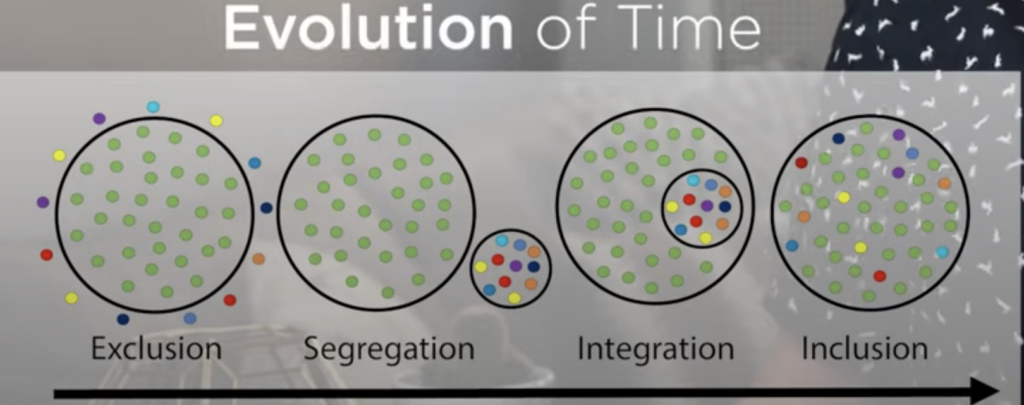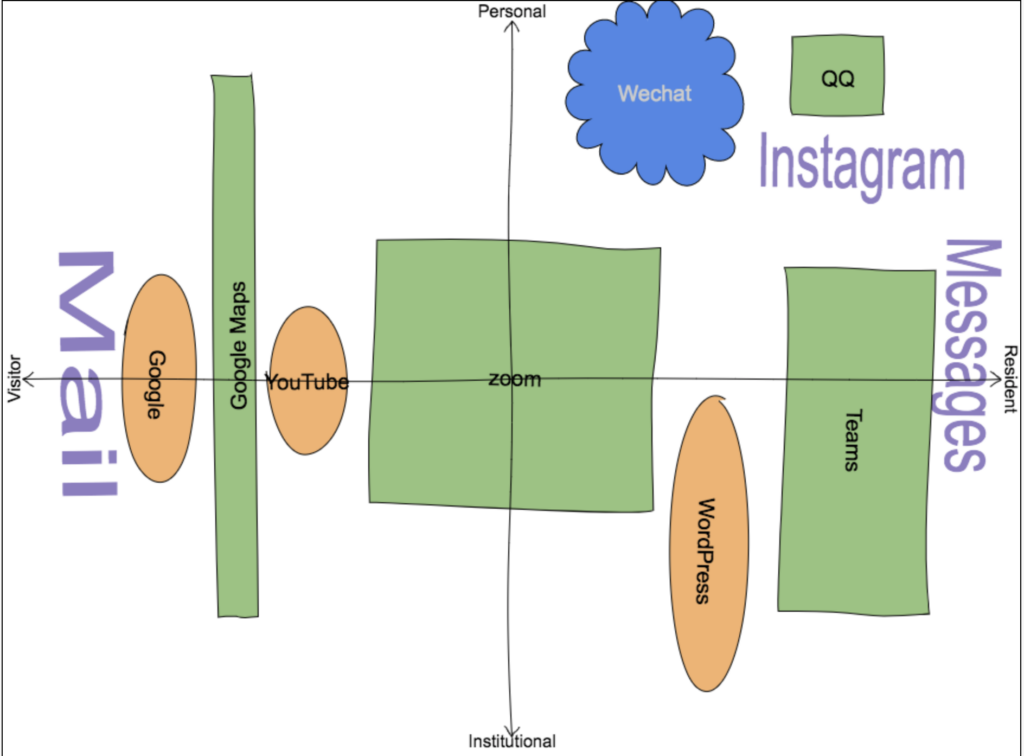In my celebration of learning post, I will discuss each of my learning outcome in this course by connecting my works with my classmates’ works to reveal my thoughts.
- Examine the application of social media to support learning
There are a variety of social media platforms, and the application of social media have positively affects people’s learning. In terms of the major project of our group, we discussed how Weibo, as a useful social media, support our learning. Specifically, we perceived that Weibo allows people to share their works and opinions on the main page, so that they are able to get some valuable feedbacks from others. People can also join specific groups on Weibo, such as reading groups and writing groups, which lead them to make more like-minded friends and learn the knowledge from each other. Besides, there are abundant sources of learning techniques and articles people shared on Weibo main page and Weibo groups related to learning, which help people to more easily and efficiently find useful learning sources and improve their learning. Moreover, in terms of other social media platforms to support people’s learning, YouTube is a vital one. According to our peers’ major project, people are able to watch academic tutorial videos from educators on YouTube, which allows people to enjoy the high quality teaching and acquire the useful knowledge, just like the same as in the face-to-face classrooms.
- Explain personalized learning and its relation to learning theory
The article “Connectivism: A Learning Theory for the Digital Age” introduced a learning theory of personalized learning, which is connectivism. When I first looked at the word, connectivism, I was really curious about how it related to the learning types, and that was why I chose it to investigate on my second Wow and Wonder post. After reading the article, I perceived that connectivism is an individual activity, and technology allows individuals to connect with each other and connect with the online information sources, so that they are able to acquire abundant knowledge, even though they have limited personal experiences. My major project argued that Weibo is a useful social media for personalized learning. Learning on Weibo connects with the learning theory, connectivism, very well, and it demonstrated how the information and sources spread and become helpful for people’s learning. On Weibo, people can update their individual knowledge online, and the online feedbacks help them to obtain more knowledge. Wenzhuo also mentioned that the learning theory, connectivism, breaks down the existing structure of traditional classroom, since people come together to help each other to build new knowledge. Overall, the stronger the connection among others, the more chances people can acquire knowledge.
- Recognize that the Internet is not a neutral or equal space for everyone
It is undoubtedly to say that the internet is not an equal space for everyone. According to the article “Visitors and Residents: A typology for online engagement”, being a visitor and being a resident of an online community offer different online privileges to the online users, and I also discussed it on my third Wow and Wonder post. Specifically, the internet residents are allowed to build social relationships with each other, and they are able to treat the internet as a place to communicate, work, and study. However, their personal information must be shown to others, since they have the digital identity. In terms of the internet visitors, they can hide their personal information, but their online rights are limited. For example, they cannot contact others and ask for help on the web when meeting questions. Overall, neither the internet residents nor the internet visitors enjoy all the rights of the internet. Moreover, Nick noticed that there is a difference between the elders and the youngers about using the internet on his Wow and Wonder(Week 4), He mentioned that since the younger generation grows up with the internet, they tend to use the internet easier than the older generation, which also reveals that the internet is not an equal space for everyone.
- Apply social media to develop a personal learning network in support of your personal and/or professional development
My visitor and resident map on Wow and Wonder post 3 depicted how do I develop my personal learning network to support my personal and professional development. Throughout this course, I mainly use Google Docs to collaborate with my group members, so that we can express our ideas at the same time. In this course, I also learn to use the WordPress to post blogs, and think about my peers’ thoughts, according to their blogs, which allows me to see the different point of views of the same topic and have a deeper understanding of the learning content. For example, in terms of my showcase post 1, I commented on Jiahui’s Wow and Wonder post to connect and build my thoughts; meanwhile, Jiahui also discussed my ideas in her show case post 1. Moreover, Github is a useful tool for me to contact with my professor and my peers; it also allow me to upload pictures and write the contents related to Weibo to finish my major project, which is mainly about how Weibo supports and exists in people’s life, and the benefits and limitations of this type of social media. In a nutshell, I applied these social medias to develop me personal network, in order to support my professional development.
- Identify privacy issues and practice online behaviours that are legal, safe, consensual, and ethical
On my Wow and Wonder post 3, the Visitor and Resident typology concerned with people’s privacy issues, which aroused my interested a lot. The article “Visitors and Residents: A new typology for online engagement” revealed that motivations and goals that are related to online behaviours resulted in identity privacy issues. For those people who want to build social relationship with others on social media, their personal information are shown to others, such as interests, locations, and telephone numbers, which lead to a privacy issue. Besides, on Mia’s Wow and Wonder post 2, she argued that social network makes the privacy issues to be more alarming. I really agree with her, and I also discussed this privacy issue in my Wow and Wonder post 6. Specifically, based on the short films from Screening Surveillance, such as tresdancing, I noticed that the surveillance had recorded too much personal information, which might cause detrimental impacts on people’s life. For example, if people’s personal data is illegally used by the organizations, their exposed locations may lead them in danger.
- Recognize data ownership and licensing (Creative Commons, Copyright, Fair Dealing, and Public Domain) as a core practice when creating, sharing, or using resources online
According to our group’s major project, people have to cite the reference of the vital content on Weibo, and the posted content should comply with the set rules, lows, and regulations. Many users perceive the importance of data ownership and licensing, and if the information sharer does not cite the original reference of the data, Weibo system and even other Weibo users would report the fact to the Weibo examiners, so that it will be prevented from appearing and be deleted on the Weibo page. People’s reaction demonstrates that the data ownership and licensing have play a vital role in people’s life, and more and more people start to recognize the importance of data ownership and licensing. Besides, Mia mentions there are many copyright concerns on Tik Tok, since Tik Tok has the license agreements with many artists. In order to avoid the copyright issues, people have to make sure the music in their videos comes from Tik Tok.
- Practice digital, networked, and open literacies in support of learning about social media and personalized learning
The article “Developing Personal Learning Networks for Open and Social Learning” in Emerging Technologies in Distance Education discusses that teachers are sharing free and open knowledge, by using the free learning tools and softwares, to teach students the course contents, so that students are able to build their personal learning networks for the collaboration of their learning. In other words, since the online and open learning supports and uses the digital, networked, and open literacies, people can acquire the knowledge for their personalized learning and learn more about how beneficial social media is in people’s personalized learning. Moreover, connecting with my Wow and Wonder post 7, I perceive that the personalized learning of the digital, networked, and open literacies are influenced by different learning motivations and vital life experiences for adults, which means that the specific learning content about social medial and personalized learning, sometimes, depends on people’s jobs and personal life. In Miah’s Wow and Wonder post, she discussed that we, as university students, chose to take the courses that are related to us and helpful in our lives; this concept is very similar to the adult online learning about the networked and open literacies.
In a nutshell, I have completed all the learning outcomes of this course; meanwhile, I learned a lot of useful social medias, techniques, and learning theories in this course, which will benefit me in my future university learning. Besides, I really like the warm learning atmosphere of this course. Thank you for my professor and my group members, they always nicely and patiently listened to my thoughts, which encouraged and motivated me a lot when I was hesitated or nervous to express my ideas.



Recent Comments